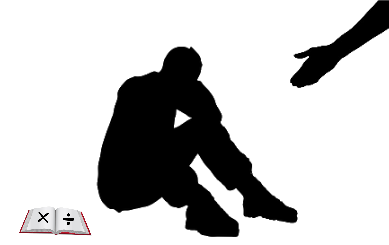Counting
Numbers
Knowing how to count is essential in any language, numbers are absolutely everywhere. Here are the first 10 numbers with a rhyme to remember them (keep in mind there are many variations of this rhyme).
| Number | Rhyme | Rhyme Translation |
|---|---|---|
| 1. egy | megérett a meggy | the cherry has ripened |
| 2. kettő | feneketlen teknő | bottomless trough |
| 3. három | te vagy az én párom | you are my mate |
| 4. négy | megcsípett a légy | the fly nipped me |
| 5. öt | érik a tök | the pumpkin is ripening |
| 6. hat | hasad a pad | the bench is splitting |
| 7. hét | dörög az ég | the sky is thundering |
| 8. nyolc | leszakadt a polc | the shelf fell apart |
| 9. kilenc | kis Ferenc | little Ferenc |
| 10. tíz | tiszta víz | clean water |
Also, 0 is nulla. If you want to say one hundred, two thousand etc., just follow the number by the quantification.
- Száz. - (One hundred.)
- Háromezer. - (Three thousand.)
- Kétmillió. - (Two million.)
Note the absence of a space.
When kettő comes before something or after a number, it is usually shortened to két. That being said, one can say kettő to clear things up so as not to confuse it with hét.
Last but not least, here are the numbers 10-90, sadly there are no rhymes for these.
| Number |
|---|
| 10. tíz |
| 20. húsz |
| 30. harminc |
| 40. negyven |
| 50. ötven |
| 60. hatvan |
| 70. hetven |
| 80. nyolcvan |
| 90. kilencven |
The numbers after tíz and húsz change the form.
- Tizennyolc. - (Eighteen.)
- Huszonkét. - (Twentytwo.)
Also note that even some of the numbers follow vowel-harmony.
Examples
- Három ember beszélget. - (Three people are talking.)
- Az utca száz méter hosszú volt. - (The street was one hundred meters long.)
- Ma csak tizennégy fok van odakinn. - (Today it’s only fourteen degrees outside.)
When answering, you don’t have to answer with a precise number, you could instead decide to give an approximate value instead.
- sok - (a lot)
- kevés - (a few)
- számos - (numerous)
- ennyi - (this much)
Challenge!
 Látod azt a két fát odakint? Az alkoholista négyet lát. (Original image, merging free images together)
Látod azt a két fát odakint? Az alkoholista négyet lát. (Original image, merging free images together)
Do you see those two tress over there? The alcoholic sees four.
Question words
Mióta?
The pronoun mióta literally means since when. It is important to know that if you answer these types of questions with a number, you need to add the possessive ending.
Barnabás: Mióta tanulsz magyarul? - (How long have you been learning hungarian?)
Oszkár: Egy éve - (For a year)
Barnabás: Csak egy éve?! Nagyon jól beszélsz! - (Only for a year?! You speak very well!)
Hány & Mennyi
These two words are both used for asking how much? but in different ways. Mennyi? is generally used for asking things that can be considered uncountable and sometimes for things that are countable, while hány? is used specifically for things that can be counted.
- Hány óra van? - (What hour is it?)
- Mennyi az idő? - (What time is it?)
- Hány turista volt a Hősök Terén? - (How many tourists were at Heroes’ Square?)
- Mennyi bort ittál? - (How much wine did you drink?)
- Most hány éves vagy? - (How old are you now?)
- Mennyibe kerül ez? - (How much is this around?)
- Mennyibe fájt? - (Slang: How much did it cost?)
Money is treated as uncountable, hence mennyi pénz? andmennyibe kerül ez? but if you use forint instead, it becomes countable hány forint? or hány forintba kerül?.
Hányadik & Hányas
Both of these are used to ask the word which? out of a numbered sequence, but are used for different questions. Think of hányadik as which? (with answers such as first, second, third) and hányas as what number? (with answers such as number one, number two, number three). Both of them use a similar vowel-harmony.
| Hányadik | Hányas |
|---|---|
| első | egyes |
| második | kettes |
| harmadik | hármas |
| negyedik | négyes |
| ötödik | ötös |
| hatadik | hatos |
| hetedik | hetes |
| nyolcadik | nyolcas |
| kilencedik | kilences |
| tizedik | tizes |
| tizenegyedik | tizenegyes |
| tizenkettedik | tizenkettes |
And so it goes on… Remember as well as tíz, húsz becomes huszadik and huszas.
- Hányadik emeleten vagy? - (Which floor are you on?)
- Hányas ház az? - (What number house is it?) az is optional
- Hányadik sorban ültök? - (Which row are you (guys) sitting in?)
- Hányas busz megy a Duna-partra? - (What number bus goes to the Danube riverside?)
- Hányadik kerületben élsz? - (Which district do you live in?)
- Hányas lábad van? - (What shoe size are you? lit. What number leg do you have?)
You may be wondering, what about melyik? Well this word is typically used when the sequence is unordered.
- Melyik könyvet keresed? - (Which book are you looking for?)
Telling the Time
When you look at an analog clock, you may tell the time in English using either of the formats minutes past hour or minutes to the next hour.
In Hungarian, the format becomes minutes into the next hour.
- Háromnegyed öt van. - (4:45)
- Negyed hét van. - (6:15)
- Fél három van. - (2:30)
When the time is a nice round number, there are different ways of saying it.
- Egy óra van. - (1:00)
- Dél van. - (It is midday.)
- Éjfél van. - (It is midnight.)
The same goes for when the time isn’t, this time there are two ways of saying it.
- Nyolc óra öt perc van » Nyolc óra múlt öt perccel - (8:05)
- Kilenc óra ötvenöt perc van » Tíz óra lesz öt perc múlva - (9:55)
- Hét óra tíz perc van » Hét óra múlt tíz perccel - (7:10)
- Egy óra ötven perc van » Két óra lesz tíz perc múlva - (1:50)
Basic arithmetic
This mini section will go over the four operations:
- Összeadás - (Addition)
- Kivonás - (Subtraction)
- Szorzás - (Multiplication)
- Osztás - (Division)
All the simple equations shown below follow a simple formula. [number] [operation] [number] az [number]
- Három meg nyolc az kilenc. - (Three and eight is nine.)
-
Egy plusz négy az öt. - (One plus four is five.)
- Hétből hét az nulla. - (Seven take away seven (lit. seven out of seven) is zero.)
-
Tíz mínusz négy az hat. - (Ten minus four is six.)
- Ötször három az tizenöt. - (Five times three is fifteen.)
-
Hat szorozva kilenccel az ötvennégy. - (Six multiplied with nine is fiftyfour.)
- Huszonnégyben a nyolc az három. - (Eight in twentyfour is three.)
- Harminc osztva hárommal az tíz. - (Thirty shared with three is ten.)
Challenge!
 Nem oszt, nem szoroz. (Original image, merging free images together)
Nem oszt, nem szoroz. (Original image, merging free images together)
Idiom: It doesn’t matter (literally: It doesn’t divide, it doesn’t multiply)
Yet to Learn
-k,-tplural & accusative- possesion, seen in
éveandlábad -nwhich is a locative-val,-velseen inperccel, kilenccel, hárommal, these are examples of the instrumental case- definite conjugation as seen in
látodandkeresed
Got questions? Join our discord server!: https://discord.gg/VsqppQ6